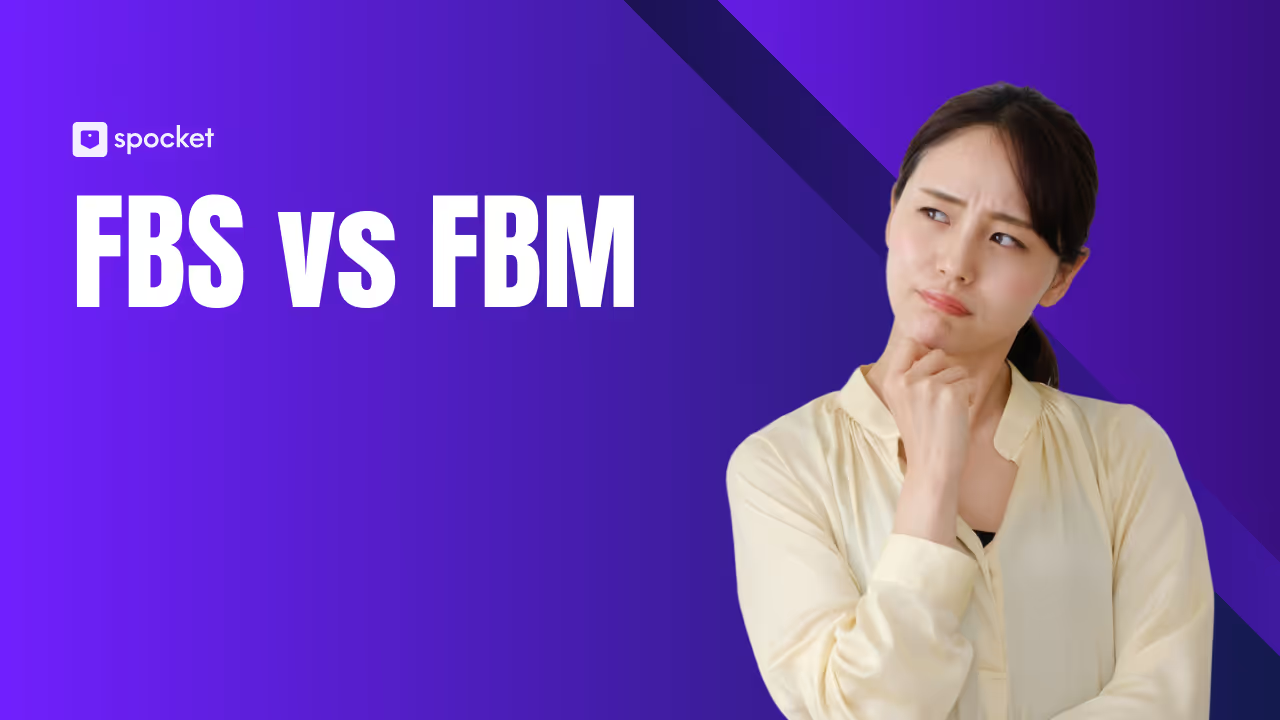Shopify vs WooCommerce
Uncover the battle between Shopify and WooCommerce in our 2025 comparison. Find out which e-commerce platform will take your business to the next level!


Choosing the right e-commerce platform is one of the most crucial decisions you'll make when starting an online store. With countless options available, two of the most popular platforms for entrepreneurs are Shopify and WooCommerce.
While both platforms have their strengths, they cater to different business needs and levels of expertise. In this comprehensive comparison, we’ll explore the pros and cons of Shopify and WooCommerce, helping you determine which platform is best for your business in 2025.
What is Shopify?

Shopify is a fully hosted e-commerce platform that allows businesses to create and manage online stores with ease. It offers an all-in-one solution for entrepreneurs, providing built-in hosting, security, and a user-friendly interface that simplifies the process of setting up and running an online store.
Shopify is ideal for those who want a hassle-free experience, as it handles the technical aspects, including software updates and server management. With features like customizable themes, payment gateways, and powerful marketing tools, Shopify enables businesses to sell products, track inventory, and engage with customers without needing extensive technical knowledge.
What is WooCommerce?

WooCommerce is an open-source WordPress plugin designed to turn any WordPress website into a fully functional e-commerce store. Unlike Shopify, WooCommerce gives users complete control over their online store’s design, functionality, and hosting, making it highly customizable. It’s an excellent choice for businesses already using WordPress, as it integrates seamlessly with the platform.
WooCommerce allows for a high level of flexibility, offering a wide range of themes, plugins, and third-party integrations to meet specific business needs. However, it does require more hands-on management for hosting, security, and updates compared to Shopify.
Shopify vs WooCommerce: A Comprehensive Comparison
If you’re planning to launch an online store, your choice of e-commerce platform will have a significant impact on the design, functionality, and scalability of your business. Shopify is a hosted solution, known for its ease of use and all-in-one approach, while WooCommerce is a self-hosted WordPress plugin offering flexibility and deep customization options. Both platforms have earned a reputation as industry leaders, but deciding which is right for you depends on your business model, technical skills, and long-term goals.
Let’s break down the key features of Shopify and WooCommerce, comparing their strengths and weaknesses in areas like ease of use, cost, scalability, and customization.
1. Ease of Use
One of the most important factors when choosing an e-commerce platform is ease of use. Both Shopify and WooCommerce are designed with different user bases in mind.
Shopify
Shopify is known for its user-friendly interface. As a fully hosted e-commerce solution, it handles all the technical aspects, such as hosting, security, and software updates, so you can focus on your store’s content and marketing. The platform features an intuitive drag-and-drop interface, which makes it easy to build and manage your store, even for beginners.
With Shopify, you can quickly get your store up and running. The platform is ideal for those with limited technical knowledge, as it removes the need for complex coding or setup. Shopify provides 24/7 customer support, including live chat, email, and phone support, so you’re never left stranded if you run into issues. Additionally, it offers built-in tools for marketing, SEO, and analytics to help you drive sales.
WooCommerce
In contrast, WooCommerce is a WordPress plugin, which means you’ll need to set up your own hosting, domain, and security. While WooCommerce is free to install, it requires you to manage everything from the ground up. This makes it a more flexible but complex solution compared to Shopify.
Because WooCommerce is a plugin for WordPress, if you’re already familiar with WordPress, you’ll find WooCommerce relatively easy to use. However, if you're new to WordPress, the learning curve can be steep, especially when it comes to managing hosting, security, and site performance. Additionally, WooCommerce offers no customer support as part of the package—you’ll need to rely on forums, documentation, or third-party developers such as Dreamix for help.
2. Pricing
Pricing is always a key consideration for anyone launching an online store. Let’s compare the costs associated with Shopify and WooCommerce to give you a clearer picture.
Shopify Pricing
Shopify follows a subscription-based pricing model. It has three primary plans:
- Basic Shopify: $29/month – Includes essential features like unlimited products, 2 staff accounts, and basic reporting.
- Shopify Lite: $79/month – Offers more advanced features, such as professional reports, gift cards, and up to 5 staff accounts.
- Advanced Shopify: $299/month – Includes advanced reporting, third-party calculated shipping rates, and up to 15 staff accounts.
On top of the subscription fee, Shopify also charges transaction fees (ranging from 2.9% per sale to 2.4% for larger plans) unless you use Shopify Payments, its own payment gateway.
While Shopify includes hosting, security, and other essential tools in its plans, the ongoing monthly costs can add up, especially if you require additional apps or features.
WooCommerce Pricing
WooCommerce is a free plugin for WordPress, but it comes with several additional costs to consider:
- Hosting: You’ll need to pay for hosting, with costs typically ranging from $5 to $30 per month for shared hosting.
- Domain: You’ll need to purchase a domain, which can cost around $10 to $20 per year.
- SSL Certificate: To ensure security for your customers, you'll need an SSL certificate, which can cost around $10 to $50 per year (though some hosts offer free SSL).
- Themes and Plugins: While WooCommerce itself is free, many premium themes and plugins cost extra. Themes typically range from $30 to $100, while plugins for SEO, payment gateways, and advanced functionality can cost anywhere from $20 to $200 or more.
Overall, WooCommerce can be cheaper in terms of initial setup, but its costs can escalate as you add premium features or scale your business. It’s a great option for those looking for flexibility, but you should be prepared for potential hidden costs as your store grows.
3. Customization & Flexibility
When it comes to customization and flexibility, WooCommerce tends to offer more options compared to Shopify.
Shopify
While Shopify offers a variety of themes and apps, its customization options are somewhat limited compared to WooCommerce. Shopify is a closed system, which means you can’t directly access the backend code to make custom changes unless you’re on the higher-end plans or use an API.
However, Shopify does offer a wide range of apps (many of which are free or relatively inexpensive) that extend the platform’s functionality. Whether you need apps for marketing, shipping, or inventory management, Shopify’s app store offers thousands of options to choose from.
WooCommerce
WooCommerce is built on WordPress, which is open-source and highly customizable. With WooCommerce, you have full control over your store’s design, functionality, and features. You can choose from a large selection of themes, both free and premium, or even build a custom theme from scratch.
Furthermore, WooCommerce offers a wealth of plugins for almost any feature you can imagine, from SEO and payment gateways to advanced reporting and inventory management. If you’re tech-savvy or have access to a developer, WooCommerce provides far more flexibility than Shopify, making it a great choice for businesses with specific needs.
4. Scalability
Both Shopify and WooCommerce offer scalable solutions, but the way they handle growth is different.
Shopify Scalability
Shopify is a hosted solution, meaning it handles all server-related tasks for you. As your business grows, Shopify can easily handle higher traffic, larger product catalogs, and more complex needs. The platform’s architecture ensures that your store remains fast and secure, even as you scale. If you’re expecting rapid growth or need to expand to international markets, Shopify’s multi-currency and multi-language features make scaling straightforward.
However, Shopify's pricing can become a concern as you scale. Higher-tier plans are designed for larger businesses and can be more expensive, especially when adding more staff accounts or advanced features.
WooCommerce Scalability
WooCommerce is inherently scalable, as it’s built on WordPress. As your business grows, you can easily upgrade your hosting to accommodate increased traffic and product offerings. WooCommerce gives you the flexibility to install advanced tools for managing large inventories, running marketing campaigns, and optimizing user experience.
However, as WooCommerce is self-hosted, you’ll need to manage your website’s performance. This could mean investing in higher-quality hosting or a dedicated server as you grow, which can add to your costs.
Which Platform Offers the Best Long-Term Growth and Scalability?
Shopify’s reliable hosting and security ensure your site runs smoothly as you scale, but as your business grows, you may need to upgrade your plan, which can increase costs. WooCommerce is also scalable, but it requires more management and technical know-how. While WooCommerce doesn’t have the limitations of Shopify’s subscription model, it’s up to you to ensure that your hosting provider can handle the growing demands of your store.
5. Security
Security is vital when it comes to e-commerce platforms, especially as you handle sensitive customer data.
Shopify Security
Shopify includes SSL certificates, PCI compliance, and regular security updates as part of its hosted service. It’s a secure platform right out of the box, making it ideal for sellers who want to avoid dealing with the complexities of maintaining security.
WooCommerce Security
WooCommerce relies on WordPress security features, and it’s up to you to implement SSL certificates, set up firewalls, and maintain regular software updates. While this gives you more control over your store’s security, it also means more responsibility.
If you’re not comfortable managing security on your own, you may need to hire a developer or invest in security plugins to ensure your store remains protected.
6. Support
When it comes to support, the experience differs between Shopify and WooCommerce.
Shopify Support
Shopify provides 24/7 customer support through live chat, email, and phone. Whether you’re dealing with a technical issue or need help with a specific feature, Shopify’s support team is available around the clock.
WooCommerce Support
As WooCommerce is open-source and free, it doesn’t come with direct customer support. You’ll need to rely on the vast community of WooCommerce users, online forums, and documentation to find solutions to issues. For more advanced support, you may need to hire a developer.
7. Developer Costs
Shopify
While Shopify is an all-in-one solution, meaning you don’t need a developer to set up or maintain your store, there are still times when you may need a developer for customizations or complex features. For Shopify, you can either use pre-built apps or hire a developer for more advanced changes. The cost of hiring a developer for Shopify can be quite expensive depending on the complexity of the customization.
WooCommerce
In contrast, WooCommerce is open-source, which gives you more flexibility, but it also requires more technical expertise. While the plugin itself is free, you’ll likely need to hire a developer to help with setup, design, and custom features. The need for developers may also grow as your store becomes more complex. Although the platform is free to install, the cost of hiring developers for ongoing customizations or troubleshooting can add up.
8. Range of Extensions
Both Shopify and WooCommerce offer a wide range of extensions to enhance your store's functionality, but their approach is different.
Shopify’s Range
Shopify offers an extensive app marketplace, with thousands of apps to add various features like accounting, shipping, SEO tools, marketing, and more. Many of these apps are easy to install and require no technical knowledge, but many of them come with a monthly subscription fee, which can quickly add up.
WooCommerce Range
WooCommerce, being open-source, offers more flexibility when it comes to extensions and plugins. You can find plugins for almost anything—from payment gateways to custom shipping methods. Some plugins are free, but many premium plugins come at a one-time fee or a subscription model. WooCommerce’s wide array of extensions allows for complete customization, but you may need a developer to integrate some of them or customize their functionalities.
9. SEO Capabilities
Both Shopify and WooCommerce are designed with SEO in mind, but the level of control they offer differs.
Shopify SEO
Shopify provides built-in SEO features like customizable title tags, meta descriptions, URL structure, and automatic sitemaps, making it easy to manage SEO without technical knowledge. It also has various SEO apps that can further enhance your store’s optimization, but customization is more limited compared to WooCommerce.
WooCommerce SEO
WooCommerce, being built on WordPress, offers more extensive SEO capabilities. You can fully customize title tags, meta descriptions, URLs, and other on-page SEO elements. WooCommerce also supports popular SEO plugins like Yoast SEO, which offers advanced optimization options. WooCommerce gives you more control over your site’s SEO, but it requires more technical knowledge to fully utilize its potential.
Why Open Source Means Long-Term E-commerce Success?
WooCommerce is open-source, meaning it’s free to use and highly customizable. With WooCommerce, you own your store completely, including your data, design, and features. This level of control gives you the flexibility to scale your store, implement custom features, and integrate with third-party tools. Additionally, because WooCommerce is open-source, you have access to the backend code, allowing for deeper customization and long-term flexibility.
On the other hand, Shopify is a hosted platform, which means it manages the infrastructure for you, but you are dependent on Shopify’s terms and limitations. While Shopify provides excellent support and a user-friendly interface, the lack of access to the source code may limit the platform’s long-term potential for some businesses. If you want complete control over your store's future, WooCommerce’s open-source nature gives you a more sustainable and customizable solution.
Conclusion: Which is Better for 2025?
Both Shopify and WooCommerce are excellent platforms, but they cater to different business needs. Shopify is ideal for those seeking an easy-to-use, all-in-one solution with minimal technical management. It’s a great choice for businesses looking for quick scalability and reliable support without getting bogged down in the technical aspects. With built-in hosting, security, and a user-friendly interface, Shopify allows you to focus on growing your store without the need for in-depth technical knowledge.
In contrast, WooCommerce offers greater flexibility and customization, making it perfect for businesses that need more control over their store’s design and functionality. If you’re comfortable with managing your own hosting and security, and already use WordPress, WooCommerce gives you complete control over your store’s features. Ultimately, if you want simplicity and fast growth, Shopify is often the better choice, while WooCommerce is ideal for those looking for deeper customization and flexibility. Your decision will depend on your technical expertise and long-term business goals.
FAQs for Shopify vs WooCommerce
Is WooCommerce better than Shopify?
WooCommerce offers more customization and flexibility, making it ideal for businesses that need control over design and functionality. However, Shopify is easier to use and better suited for beginners, with built-in hosting and support.
Should I switch from Shopify to WooCommerce?
Switching from Shopify to WooCommerce makes sense if you need more flexibility, control over your store, and have technical expertise. However, it requires more setup and ongoing management, so weigh the pros and cons before making the switch.
Which is better, Shopify or WordPress?
Shopify is a fully hosted solution designed specifically for e-commerce, making it easier for beginners. WordPress, with the WooCommerce plugin, offers more control and flexibility but requires more technical expertise for setup and maintenance.
Is WooCommerce free or paid?
WooCommerce is free to install, but you’ll incur costs for hosting, domain, SSL certificates, and premium plugins. While the plugin itself is free, the overall setup can become costly as you add features.
What is the best eCommerce platform?
The best eCommerce platform depends on your business needs. Shopify is ideal for beginners and businesses looking for ease of use, while WooCommerce is best for those needing flexibility and customization, especially if they are already familiar with WordPress.
Launch your dropshipping business now!
Start free trialRelated blogs

FBA vs FBM: Which Amazon Fulfillment Method Is Better for Your Business?
Compare Amazon FBA vs FBM with fees, Prime eligibility, control, scalability, and profitability. Learn when to choose FBA, FBM, or a hybrid strategy.

Walmart Seller Center: The Complete Guide to Selling on Walmart Marketplace
Learn what Walmart Seller Center is, how it works, key features, requirements, fees, and how to start selling on Walmart Marketplace step by step.

Is Appen Legit?
Wondering if Appen is legit? Learn how Appen works, what real reviews say, typical pay expectations, common red flags, and how to avoid fake Appen job scams.

































